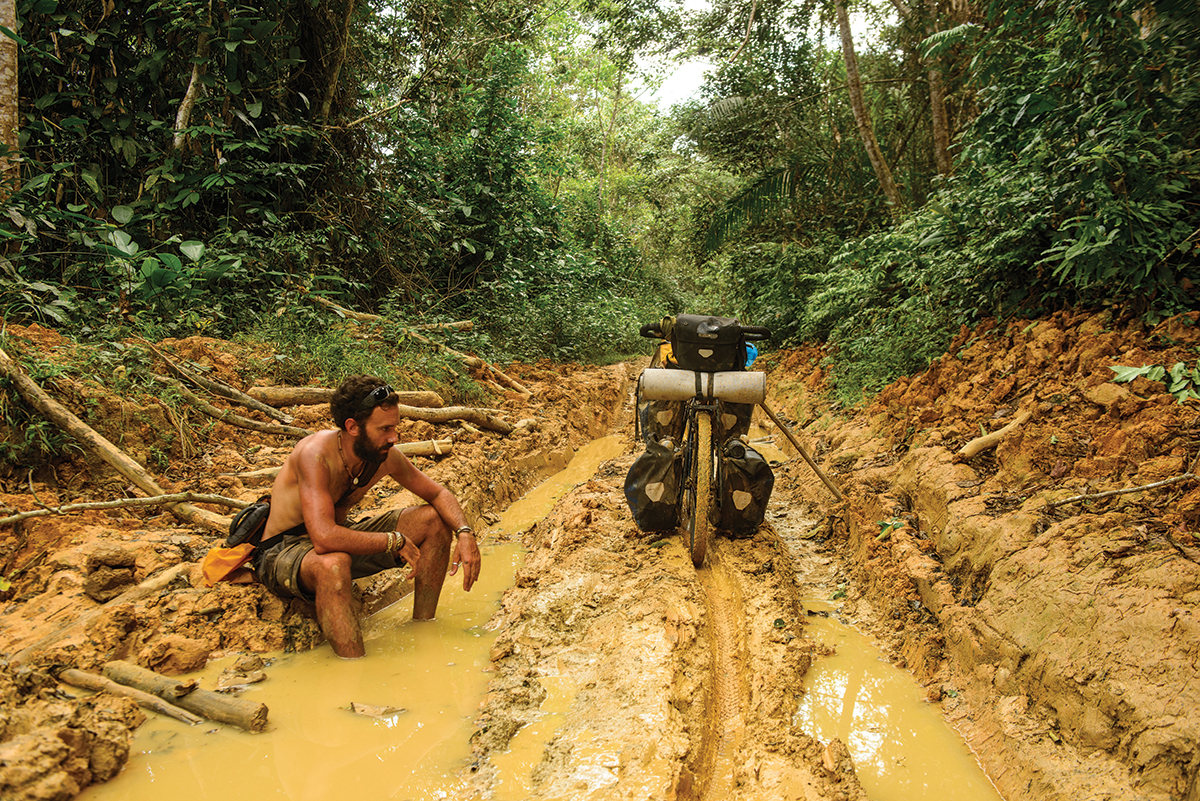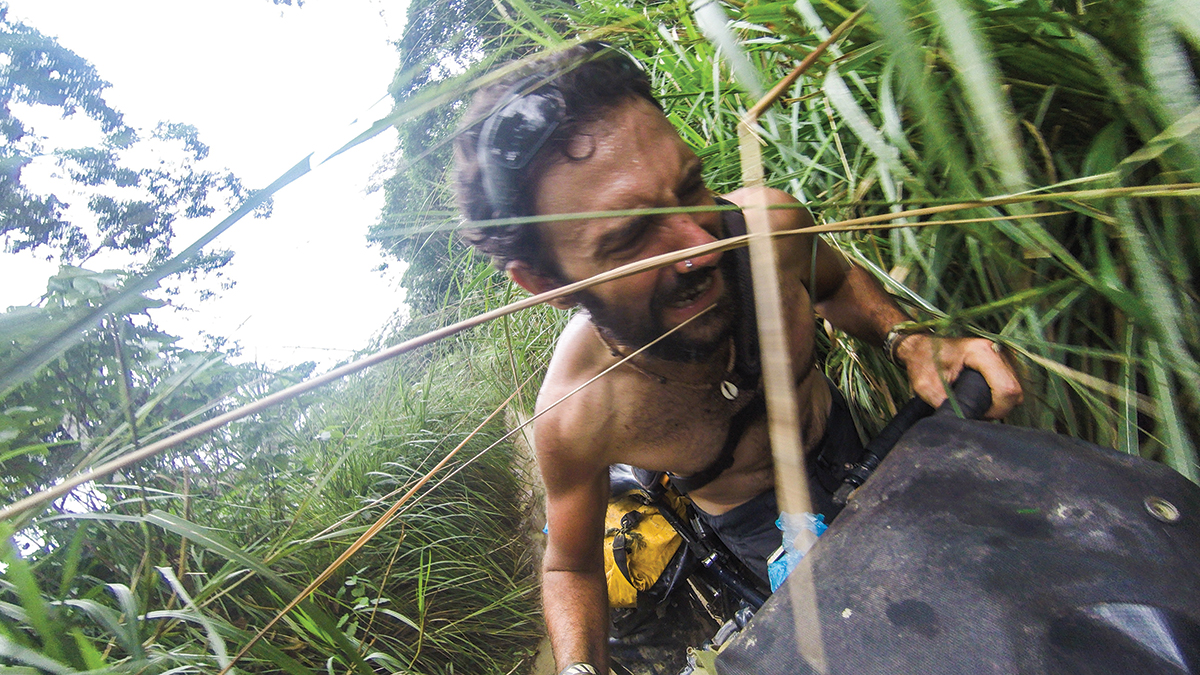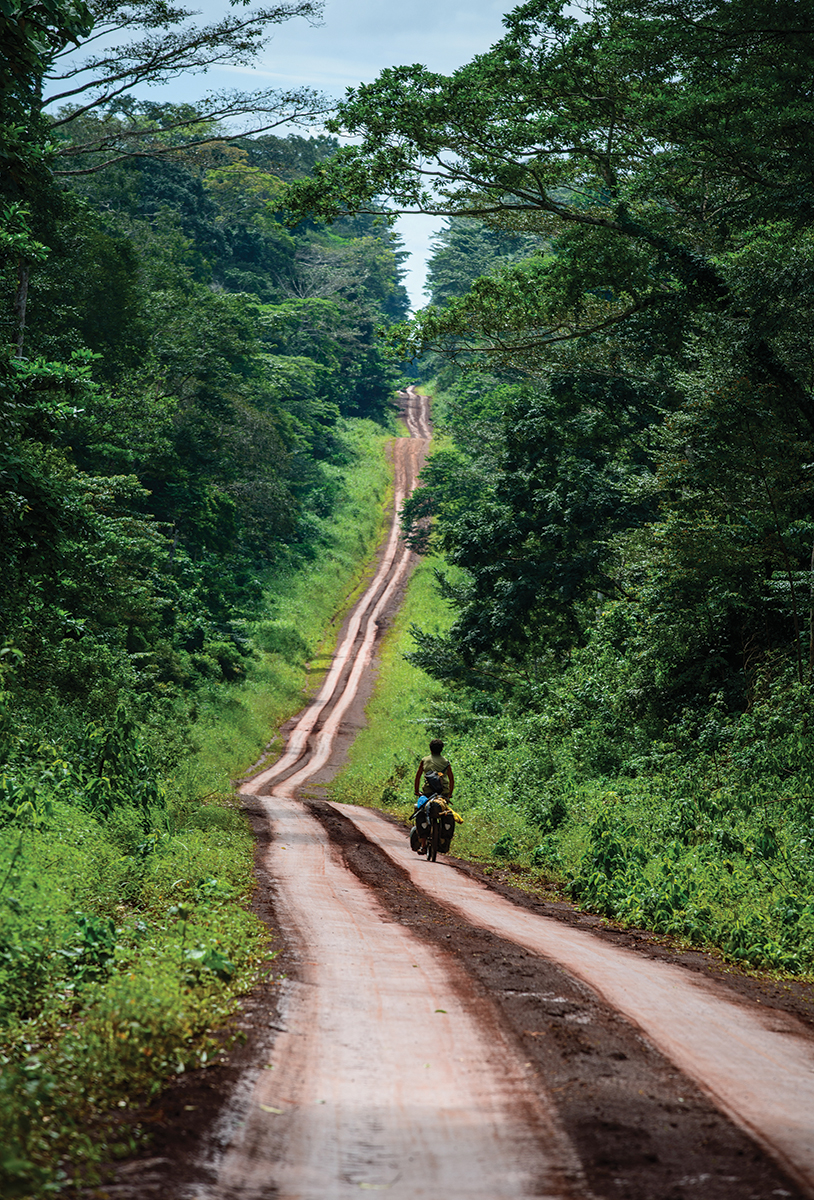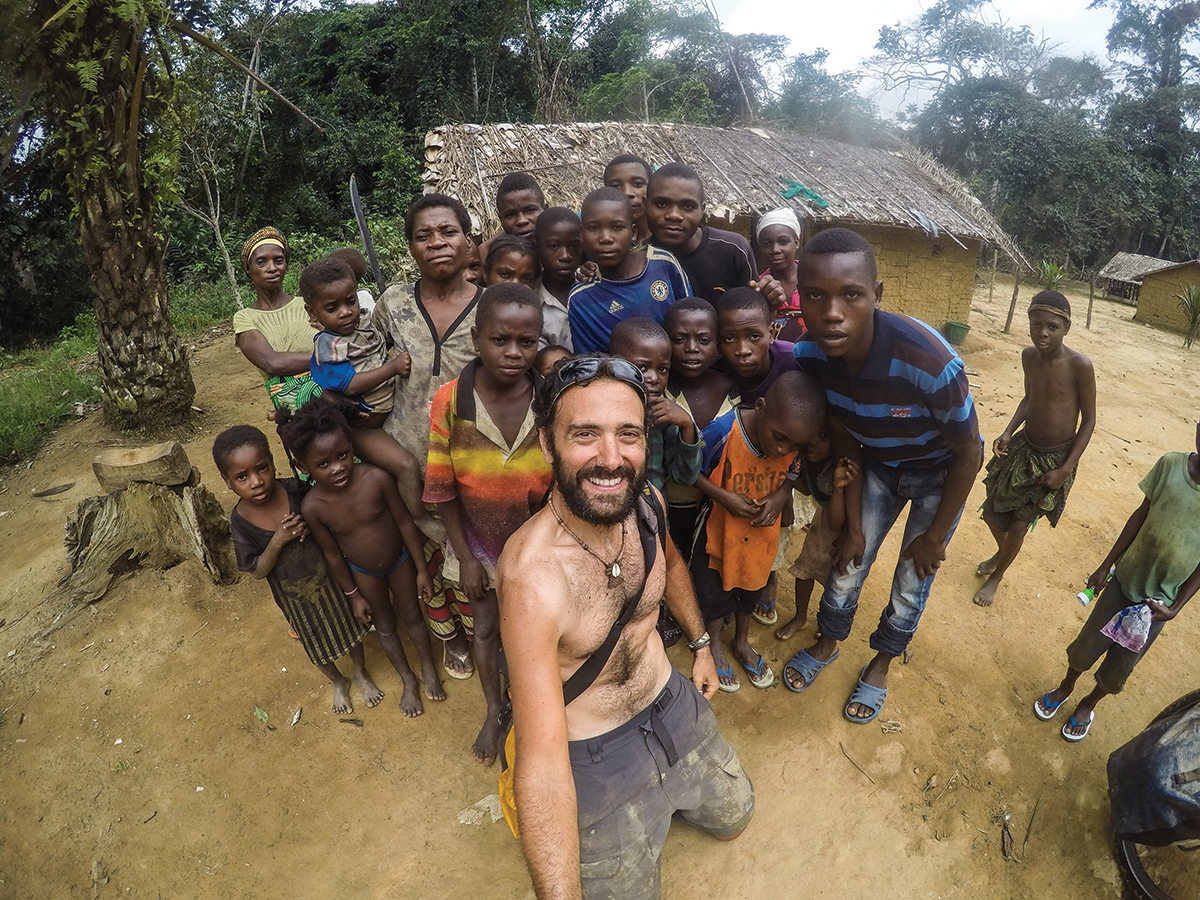Nothing Comes Easy in the Congo
The Congo. These words resonate in the head of every true adventurer. The Congo evokes images of mystery — of a world that has remained impenetrable for centuries and that has punished with death those early explorers who attempted to cross it. Congo and its neighboring countries are the lungs of Africa. They are that dark green patch on the map of the continent, the equatorial rainforest of Central Africa.
By the time I left Angola and crossed into the Republic of the Congo, I had spent years dreaming about this moment. My mind and my body were all high on adrenaline and fear. I was finally ready to indulge in the adventure of a lifetime.

However, reaching the rainforest did not happen straightaway, and first I would have to get to know a side of the Congo that certainly wasn’t the one I expected. As I headed north toward the equator, I would spend weeks swallowing red dust along the arid lands of southern Congo. Later, long and boring days led me to the Gabonese border, across the vast and open equatorial savannah where there was no place to run for shelter. It was the tropics without trees. Here the humidity asphyxiates and the blazing sun grills you without mercy. But things would change soon afterward.

Barely a hundred miles into Gabon and there I was, once again at the doors of the jungle. Now I was riding surrounded by thick walls of lush vegetation, and all I could hear was the sweet symphony of zillions of creatures buzzing endlessly around me. Frequent whiffs of fresh air coming from the plants relieved me from the otherwise stifling heat. The ups and downs of the hilly solitary roads full of potholes and corrugations slowly became challenging. However, what was really unsettling was knowing that I was heading into unknown territory, hoping to get back to the Congo through a border crossing for which there is no information of any kind.
“It was war for sure, but there was no such thing as road, only a strip of thick mud of varying widths and swamps of sludge where I sank down to my knees.”
Three weeks of rough but stunning cycling passed by, and the easiest was finally over. When I reached the remote village of Mékambo, the locals confirmed that there was indeed a way across the border through the jungle. They were also quick to point out that I had to be completely insane to even try it on a bicycle — not even vehicles could make it. However, I never even thought of retracing my steps. I was ready to go all the way. As I waited under a thatched hut on the edge of the village until the daily tropical downpour ended, a villager told me while gazing at the heavy rain, “That road is war.”
The ordeal that followed pushed me to my limits again. It was war for sure, but there was no such thing as road, only a strip of thick mud of varying widths and swamps of sludge where I sank down to my knees. The trail appeared and disappeared completely in between the thick vegetation, and there I was all day, soaked in sweat, pushing and dragging the bicycle, which now felt like it weighed 500 pounds. An evil plant called makinga slit open my skin and left it burning like fire for hours. I only found relief at night in the forsaken Pygmy and Bantu villages along the way. It took me seven days to cross from one country to another during which time I pulled off 70 miserable miles, but as I reemerged on the other side, I was in heaven and ready to keep going.
For a couple of easy days, I recovered along route N2, the backbone of the Congo, but by the time I wasn’t exhausted anymore, I had started pushing through yet another ordeal into the unknown. Now I was on my way to the Central African Republic (C.A.R.) along the far northeast border of the Congo, and I found myself experiencing a virtually endless succession of overwhelming emotions. One day before reaching the station of Bomassa, I went from being face to face with rainforest gorillas, to being beaten by a corrupt Congolese immigration officer for refusing to pay him a bribe, to finally almost losing my life while trapped in a swamp in the middle of the night in the heart of the pitch-black jungle where I was surrounded by thousands of invisible creatures — deadly cobras slithering next to my feet and irritated forest elephants only a handful of feet in front of me. After I made it through alive, I navigated for six hours by boat along the mighty Sangha River on the way to the C.A.R. As I contemplated the beauty of life, I couldn’t help but reconfigure all of my beliefs until then.

In desperate need of a break, I kept pushing through the rainforest until I reached a settlement of Bayaka pygmies where I would spend some of the most incredible times of my life. For three weeks, I lived with these extraordinary human beings who have been there since the dawn of time. They opened their hearts to me and made me part of their lives, taking me on their hunting expeditions to the depths of the jungle and showing me their ancestral rituals. By the time I had to leave, I felt all my efforts had already paid off.
I was nowhere near the end though. It had taken me months to get in, and now I had to get out. As I disembarked on the Cameroonian side of the Sangha River, suddenly all the abuses I had put myself through began to take a toll on my body. Months of extreme efforts, malnourishment, and lack of good rest made me very weak and subject to illness. Weeks of even more muddy roads across the rough eastern part of Cameroon, a painful scorpion sting, and wounds that wouldn’t heal due to poor hygienic conditions led to a brutal bacterial infection and impetigo. A numb foot, swollen ankles, insects harassing my open wounds, and exhaustion made the days more and more difficult. It would take me several weeks in Nigeria, proper food, and treatment to recover.

By the time I was out of the rainforest, three months had gone by. I had cycled roughly 1,900 miles and lost about 26 pounds, but the experience was nothing but pure bliss. As I continued my journey across Africa, now with the jungle behind me, I felt happier than ever. I knew that from that point on, anywhere I might be, I would be able to close my eyes and invoke the sights, smells, and sounds of the rainforest. Nobody can ever take these memories and emotions away from me. The physical and mental sense of accomplishment, and my one close call, surely made me an even stronger person, but the real reward was having had the chance to spend my life with the extraordinary people who live in such remote places. Every day I received a lesson in life that opened my heart and mind and ultimately made me a better human being. That’s the reason why I travel.
This story originally appeared in the December 2018/January 2019 issue of Adventure Cyclist magazine.

